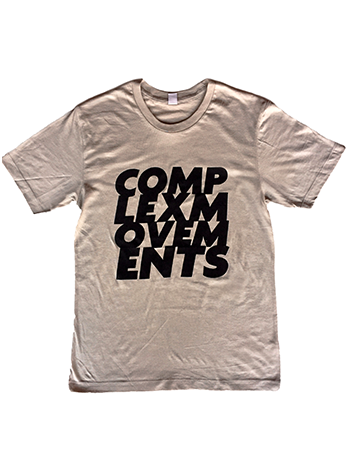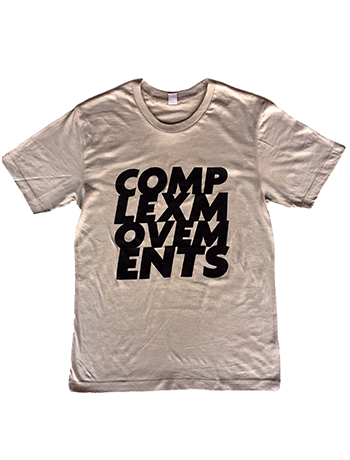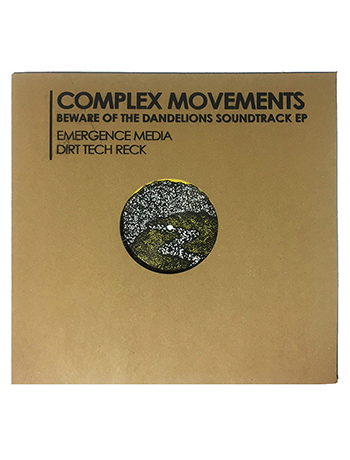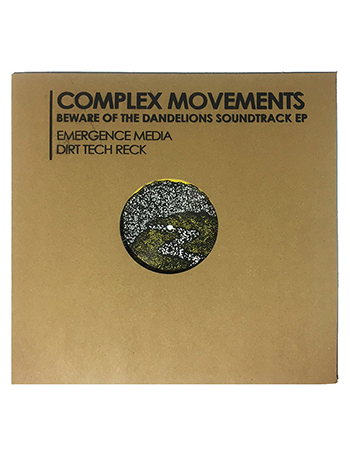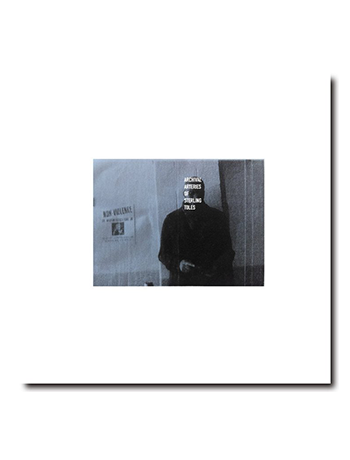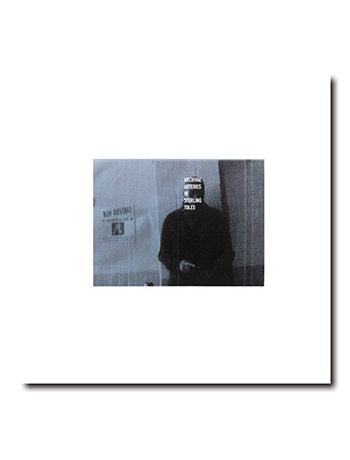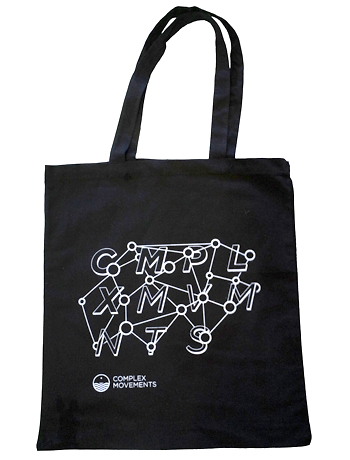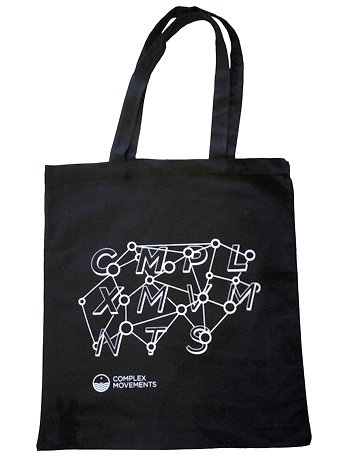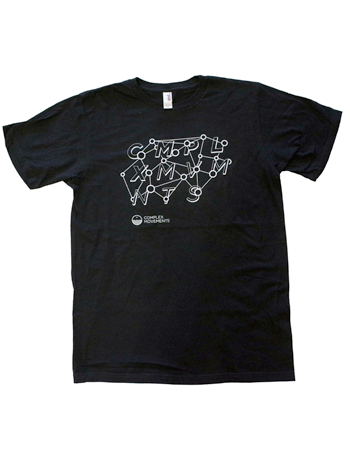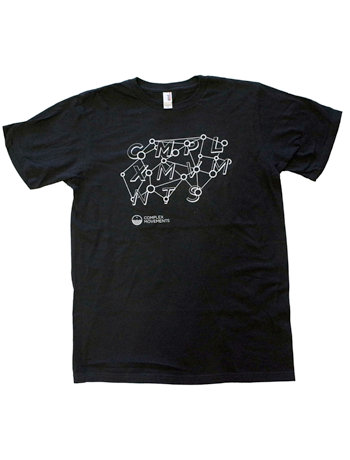THEY: Interview with Ignacio G Rivera
ill Weaver and Wes Taylor have developed and are sharing a new line of apparel for Emergence called “THEY”. “THEY” is a strategy for signalling one’s self-identification with the gender nonconforming pronouns “they” and “them” in an affirming and aesthetically bold way. As part of the launch of this new apparel, ill discussed the “they/them” pronouns with other inspiring individuals who use “they/them” pronouns.
Read on for ill’s summary of their conversation with Ignacio G Rivera. Read more thoughts from ill Weaver on the THEY campaign here.
About Ignacio G Rivera
Ignacio G Rivera is a Two-Spirit, Black-Boricua Taíno, queer performance artist, activist, filmmaker, lecturer and sex educator who prefers the gender neutral pronoun “they.”
Ignacio has been sharing spoken word, one-person shows, and storytelling internationally. Ignacio’s body of work has focused on gender and sexuality; specifically on queer, trans, kink and sexual liberation issues within a race/class dynamic.
Learn more at http://www.ignaciogrivera.com/
ill discusses THEY with Ignacio
 Ignacio’s experience of going by the pronoun “they” began almost a decade ago. They realized they were gender fluid, and wanted a pronoun to reflect that. Initially Ignacio asked people to use “he” and “she” pronouns interchangeably to refer to them, but that approach wasn't working. People around them generally defaulted to “she” because that's what pronouns were people were more familiar with. Then Ignacio asked people to use the pronoun “he” to refer to them, so that the distinct shift was more clearly understood, but they soon realized that “he” didn't fit their gender either.
Ignacio’s experience of going by the pronoun “they” began almost a decade ago. They realized they were gender fluid, and wanted a pronoun to reflect that. Initially Ignacio asked people to use “he” and “she” pronouns interchangeably to refer to them, but that approach wasn't working. People around them generally defaulted to “she” because that's what pronouns were people were more familiar with. Then Ignacio asked people to use the pronoun “he” to refer to them, so that the distinct shift was more clearly understood, but they soon realized that “he” didn't fit their gender either.
Eventually they were inspired to take on “they” pronouns by a friend of theirs that went by those pronouns – it just made sense to Ignacio the way no other pronouns had. “They” was something that would not connote a singular gender, and would allow for their full and complex identity to exist.
In our conversation Ignacio spoke about the relationship of this pronoun to their Latin@ culture. In the Spanish language everything is gendered and you cannot use "they" as a personal pronoun. Therefore, when engaging with their family, their preferred pronoun is not used nor understood.
Ignacio then reflected on a contrasting experience- how they still love to be called “mom” by their daughter, and also loves seeing the look of confusion on people's faces when they are referred to as a mother in public.
They explained how they see their identity in constant transition. Not a transition from point A to point B, and not a phase between states, but a dynamic existence. They explained the ways they have made their pronoun clear to people in the past: through a button on the shirt, or a tagline on their email, or at one point, they even carried copies of a mini-zine that explains the pronouns and handed the zine out when necessary. In the “about” section on their Facebook page this information is shared:
Gender Neutral Cheat Sheet
If you are talking to me directly, then you don't have to use my PGP (Preferred Gender Pronoun)
If you are talking with others about me (and it better be good stuff :)
Instead of referring to me as:
He or She.......you should say "They"
Him or her.....you should say "Them"
His or Hers.....you should say "Their"
Practice it....you'll get the hang of it.”
They explained that this info section got added after many experiences of having people come up and despite good intentions, use they pronouns incorrectly. For instance, someone would be speaking to them directly and instead of saying “You have a nice shirt on”, someone might say “They has a nice shirt on”. Ignacio would thank them on the compliment, and do their best to explain the proper use. This became a simple and humorous way to address the confusion.
There are also ways that people have been resistant. For example when facilitating workshops or meetings, Ignacio asks for opening circles to share gender pronouns. Some people don't understand the point and get defensive, or say things like, "Of course I'm a woman!", or, "I use male pronouns." Ignacio then asks people to consider what they mean by their assumptions, or by male pronouns. They also talked about some cisgendered straight people who are flippant when it comes to this exercise, that sometimes respond with comments such as, “whatever, you can call me anything”. Ignacio then makes sure to push back on that kind of dismissal, by explicitly calling them the opposite pronoun that they most likely actually go by. That tactic often goes a long way towards making the point that this person does not want to be called whatever, and want to be correctly gendered as well.
Ignacio has also experienced other kinds of blatant resistance to their gender non-conformity, such as being stopped by a police officer while walking their dog, and being intrusively interrogated about their gender.
This difficult experience inspired their newest performance piece, which is still in process, about a future apocalyptic scenario where being gender nonconforming is considered illegal. In addition to this piece, Ignacio’s many other brilliant performance and organizing projects address these issues of gendered, racial, and class identities, and the intersections with criminalization and violence.
Next →
← Previous



